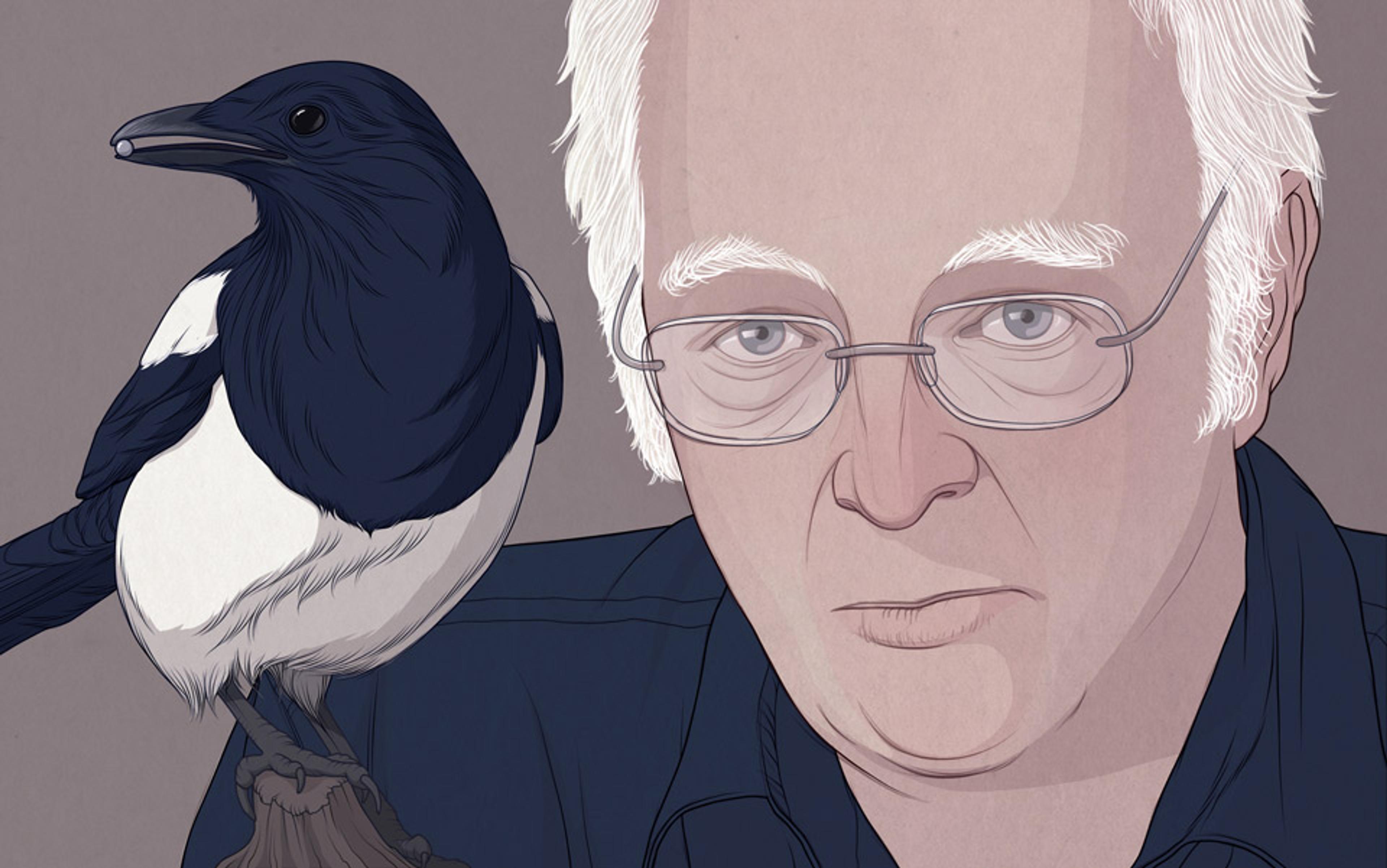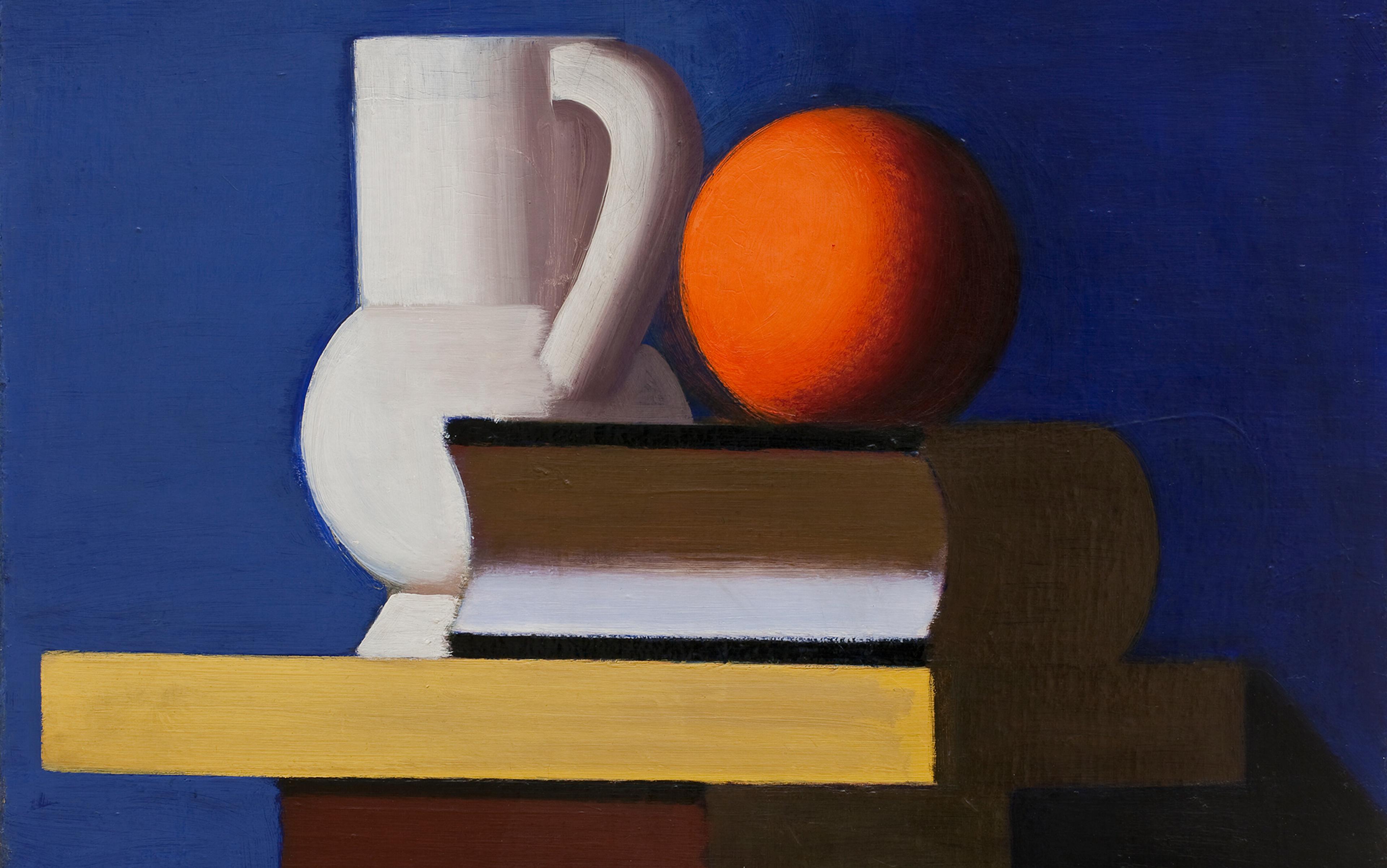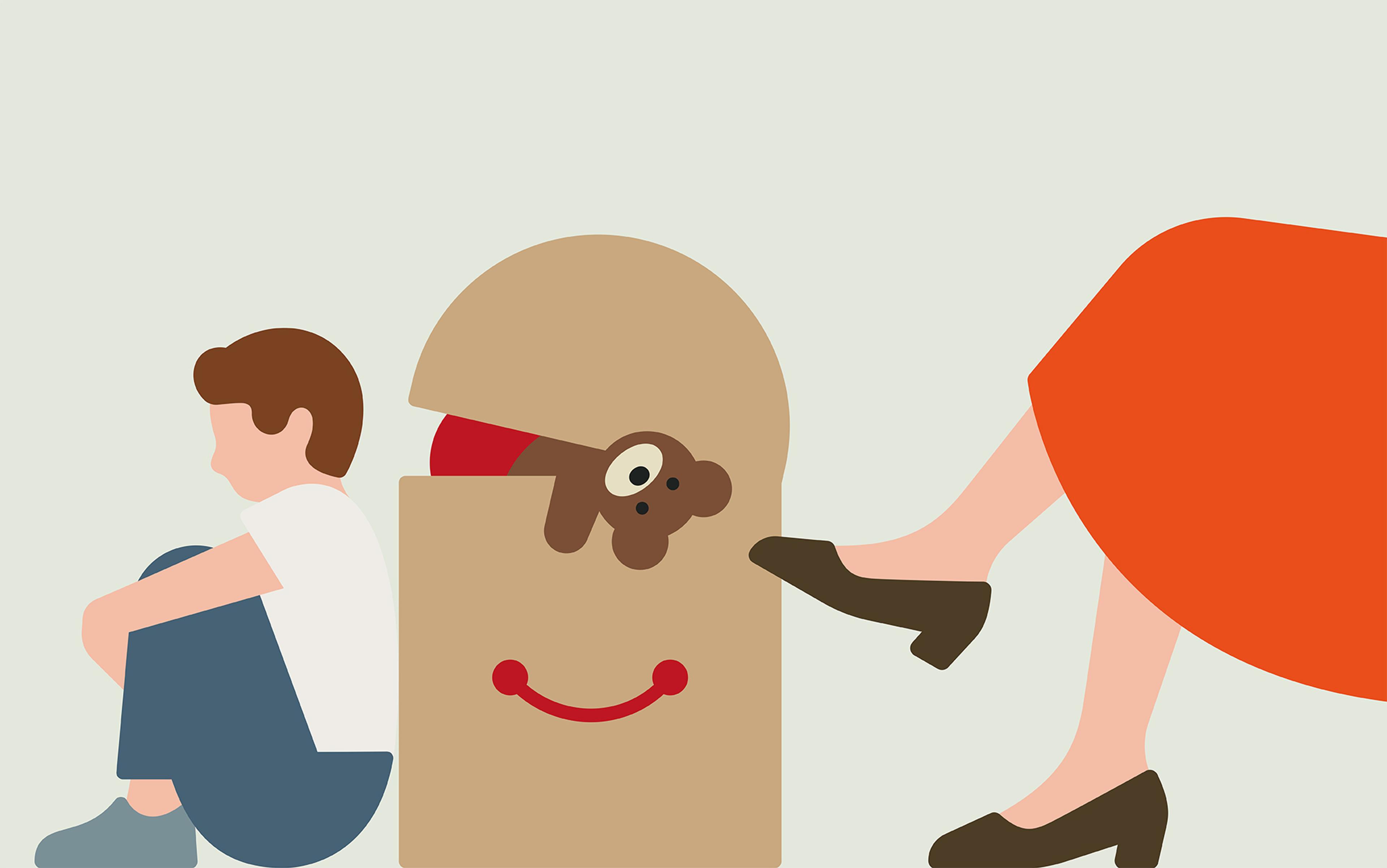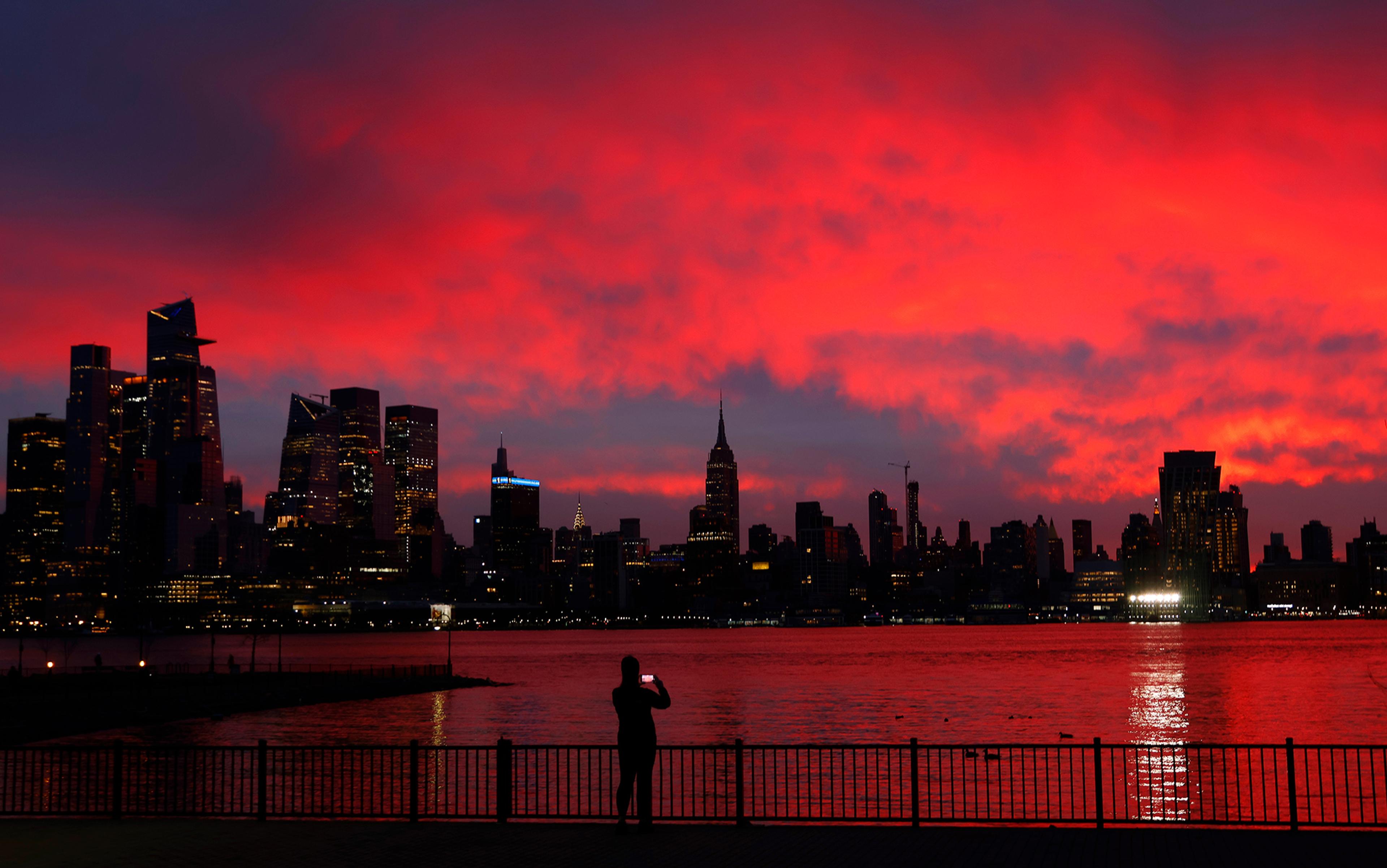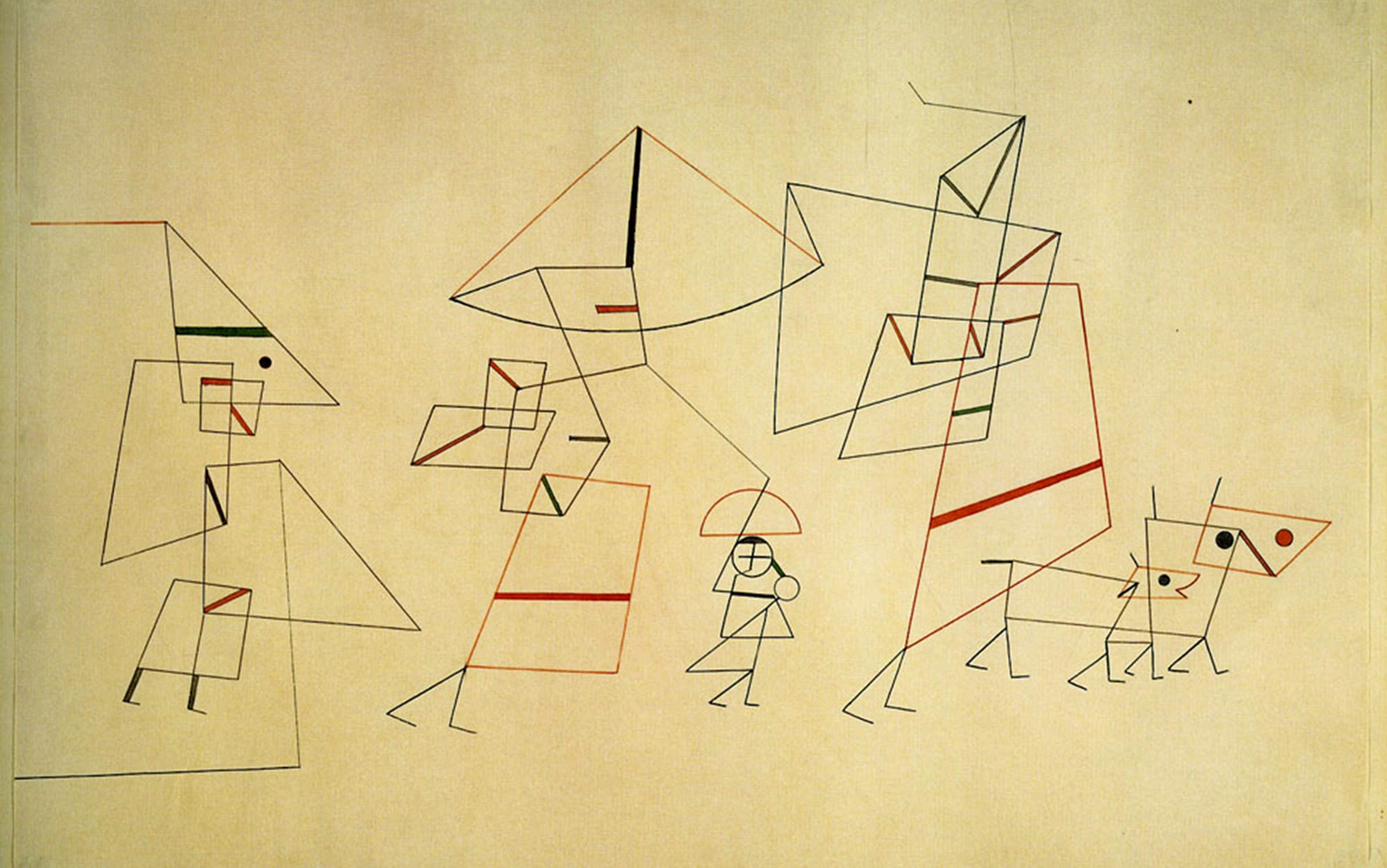The most impressive thing about meeting Philip Pullman is how unimposing he is. Renowned as a master of mythologies, casting a cultural shadow that stretches from Hollywood films to intellectual debates about atheism and faith, you’d expect his Oxfordshire house to be some kind of remote, brooding mansion. Instead, I ring on the door of a roomy but low-key suburban household, feet away from the main road in a commuter-belt village. Tall, diffident, if a little wary at first, Pullman shows me to the comfiest sofa by the fire, and makes a pot of his trademark tea (three spoons of Assam to one of Lapsang Souchong). Rather than a magus or self-absorbed thinker, the author of the world-famous fantasy trilogy His Dark Materials reminds me more of a circumspect but kindly English teacher — which, of course, he was for many years.
Any residual wariness falls away as Pullman takes me out to his small woodworking shed. He apologises that it is a bit of a mess, but it looks like a cherished — almost fairytale — workshop to me, with its racks of shiny chisels and rounded mallets. When we return to the fire, Pullman tells me that he made the table-cum-stool in front of it himself, his first bit of upholstering. More impressive still is the rocking horse in the centre of his study, surrounded by stacks of books. The wood and gesso creation took him years to make, but it’s now ready for Christmas and the arrival of his grandchildren. Almost immediately, he’s remembering his own childhood, with Christmases at his grandfather’s rectory in Norfolk, and talking about the early death of his father, a Spitfire pilot.
‘I was seven or eight when my father died in a plane crash in Kenya — or Keenya, as they used to call it then. He was training other pilots to fly a bomber — a Harvard, I think — at the time of the Mau-Mau insurgency.’ For years, Pullman believed that his father ‘had been shot down in battle, which I thought at the time was a grand and noble thing to do… It was only much later when I realised what the Mau-Mau was: and it was a much more ambivalent and ambiguous thing.’ It wasn’t just the colonial war his father was fighting, and for which he was posthumously decorated, that turned out to be morally ambiguous. In 2008, Pullman was told that his father had not in fact died in combat, but during a training exercise, the result of pilot error or mechanical malfunction.
With a heroic father-figure who turned out to have wings of wax, it’s tempting to see Pullman’s recurrent theme — the struggle with authority — as a re-enactment of so many male writers, trying to vindicate or topple their fathers. Pullman resists this off-the-shelf analysis: ‘I didn’t hero worship him in absentia.’ Though his father was ‘a big, loud, laughing presence, with an RAF moustache, smelling of cigarettes and beer’, he was away for long periods before his absence became absolute. Pullman’s mother soon remarried, to a family friend in the RAF, and Philip and his brother acquired two half-siblings, and a rebellious teenage stepbrother (‘I was in awe of this Canadian Gangster’).
But then, as Pullman was recently reminded by a teacher from his Welsh secondary school, this was an age of heroism. ‘Every male teacher had fought in the war,’ he says. ‘This chap had commanded a tank; that one had stormed the beaches at Anzio; another had sailed the Arctic convoys; another had flown solo planes across the Atlantic… I wish I could go back and talk to them about it.’
It is said that every writer needs the gift of an unhappy childhood, yet Pullman’s appears to have been convivial, and full of fun and mischief. His most vivid early memories are of two journeys by sea and rail; first to Southern Rhodesia, via Cape Town: then to Australia, by way of the Suez Canal, India and Ceylon. It was on this second journey that Pullman was ‘infected by poetry’. He bought of copy of Longfellow’s epic poem The Song of Hiawatha (1855) and ‘read it over and over again’ during the four-week voyage. The return journey was diverted via the Cape of Good Hope on account of the Suez crisis. When I suggest he has the pink map of the British Empire physically lodged in his head, Pullman agrees.
‘Yes, I’m very lucky. I’m one of the last children who have this experience of empire in my muscular memory,’ he says. ‘And that muscular memory consists of trying to stand upright on a plunging ship.’ Those long sea passages instilled in him a sense of ‘how big the world was’ compared with modern jet travel, and Pullman hones in on details that reveal his empirical, storyteller’s eye: the different shape of waves in the Atlantic compared with the Indian Ocean, or the varying strokes of boatmen in Bombay and Las Palmas. His wasn’t a lonely childhood of imaginary friends. ‘We weren’t the Brontë Brothers,’ he says, laughing; it contained an abundance, not a dearth, of experience.
Although Pullman gained notoriety for excoriating religion after the publication of his book The Good Man Jesus and the Scoundrel Christ (2010), including a pile of hate mail and threats of damnation, his personal memories of church are filled with the sonorities of the King James Bible and the Elizabethan Common Book of Prayer — ‘Lighten our darkness, we Beseech thee, O Lord.’ It was a linguistic legacy that left him ‘prepared for poetry’.
There was a transformative moment at a school concert when six older boys — ‘big brutes with whiskers’ — came in and started chanting: ‘A cold coming we had of it,/Just the worst time of the year/For a journey, and such a long journey….’ Pullman recites the rest of T S Eliot’s ‘Journey of the Magi’ (1927), and the atmosphere crackles like the fire. ‘I had no idea what this was. It sounded like a story: but there were bits of it that made my skin prickle, hair stand on end.’ He goes on to relish the valley ‘Wet, below the snow line, smelling of vegetation’. In every fragment of poetry he recalls, either Eliot now or John Milton later, Pullman seems to have interiorised a mixture of lyricism and cinematic montage, very different from the misty make-believe of most fantasy writing.
‘As a teenager in Wales, I wandered through the woods, thinking that this was the Garden of Eden. I’ve always had a sense that behind the thing you see is something else’
Educated in Harlech, in North Wales, Pullman was the beneficiary of a demotic Welsh tradition: ‘Writing poetry was something that everybody did — the greengrocer won prizes at Eisteddfod [a Welsh literary festival]’, he says. The surrounding countryside made him aware of another poetic: the idea that the miraculous and everyday could coexist. ‘As a teenager in Wales, I wandered through the woods, thinking that this was the Garden of Eden. I’ve always had a sense that behind the thing you see is something else.’ I tentatively compare this vision with that of Stanley Spencer’s paintings of Cookham, his hometown in Berkshire, where the resurrected have to wipe the dirt off their 20th-century jackets. Pullman doesn’t seem perturbed by the comparison.
Unlike Richard Dawkins, whose recent autobiography revealed an intense teenage religious phase, Pullman doesn’t have a zealous former self to rebel against. The biggest influence on his adolescent imagination was the Beatniks. At the age of 15, in the school’s library van, he found a copy of New American Poetry: 1945-1960. Allen Ginsberg had a ‘huge effect’. Pullman begins reciting ‘Howl’, and when he gets to the line ‘angelheaded hipsters burning for the ancient heavenly connection’, he exclaims: ‘I remembered thinking: “Wow, are you allowed to write stuff like this? This is amazing.”’ Ginsberg led back to William Blake, but also to Jack Kerouac. Soon, together with another ‘resident intellectual’ schoolboy, Mervyn Jones, who encouraged him to join CND marches, they established in North Wales ‘a tiny branch of San Francisco’.
When he went up to Exeter College, Oxford, ‘everyone was being a hippie, with long hair and bare feet… Though I could never find my way to the drugs.’ When I point out that’s probably why he remembers the 1960s, he laughs. ‘I wrote poetry. I played guitar and, to the embarrassment of my family, I tried to sing.’ Later, explaining how science provides wonderful analogies, Pullman alights on neutrinos that ‘pass through a light year of lead without touching anything — which is a perfect metaphor for my time at Oxford.’ I sense some regret behind the humour. ‘I wasn’t a scholar,’ he says. ‘I didn’t enjoy it at all.’ This is a bit odd given Pullman’s present reputation, but he gestures to his handiwork in front of the fire. ‘I would have liked to have gone to art school, to make this, whatever you call it… stool? Tea table?’
While a previous generation of Oxford-educated mythmakers, such as J R R Tolkien and C S Lewis, found a niche in academia, Pullman tested his narrative powers in a much less rarefied circle, and so we come to the 12 years he spent as English teacher, in relative obscurity, on the outskirts of the ivory towers. These weren’t wilderness years: Pullman sees them as essential to the improvement of his craft. ‘I was writing seriously, with purpose, and intention, and will, from the time at Oxford,’ he says, but he’d given up poetry to concentrate on fiction.
We talk briefly about writers who found acclaim early on in their careers, such as J K Rowling. ‘Goodness me, yes,’ he exclaims. ‘I don’t know how she coped with it, having a success like that. It would have wiped me out.’ Though Pullman gives Rowling full credit for keeping up her output, he adds: ‘I’m very glad I didn’t have success with my first published book… Or my second, or my third, or my fourth or my fifth. It was a bit galling at the time. But the time I spent teaching was a valuable time for me because of what I learned about telling stories.’
Every year Pullman would write and direct the school play. He also taught Greek myths ‘incessantly’, before the advent of the national curriculum, ‘otherwise I wouldn’t be allowed to do what I did’. The first term would be devoted to stories of Theseus, the Minotaur, and Oedipus; the second to the Iliad, and the third to the Odyssey. He learned to keep the attention of nine- to 13-year-olds, by timing his cliffhanger — ‘the bell went at 10.20am’ — and ending the lesson on a tense moment, such as when Achilles comes out of his camp looking for his slaughtered companion Patroclus. ‘I can’t do funny stories, I can’t tell jokes,’ Pullman says. ‘But I can tell exciting things.’
For 12 years, the pupils of an ordinary Oxford middle school must have had one of the most astonishing educations in the country. The classroom gave Pullman a space to learn as well as perform. ‘It was like being given the keys of the Rolls-Royce,’ he says of teaching the Classics. ‘When I’m reading, I’m looking for something to steal,’ he continues, confiding that his own daemon or animal familiar would be a thieving magpie or raven. ‘Readers ask me all the time the traditional question “Where do you get your ideas from?” I reply: “We are all having ideas all the time. But I’m on the lookout for them. You’re not.”’
This dual experience, of being both reader and educator, and also a writer and creator of the highest order (he’s currently president-elect of the UK’s Society of Authors), has left Pullman with unusual insight into the dichotomies of his craft. ‘Writing is a process that’s entirely totalitarian,’ he says. ‘A writer is a tyrant, a dictator. He has complete power over every comma, every sentence, every character. When I’m writing, I’m the boss — I’m in charge.’ However, the power equation soon reverses. ‘When the book is published, the political nature of it changes completely,’ he explains. ‘People can read my books in whatever way they want to. I don’t want any control over the process of reading, it’s democratic: and furthermore, between the reader and the book there opens up a space of complete freedom, which is also private. In a democracy, we have a private voting booth. It’s secret. So the difference between reading and writing is the difference between democracy and tyranny.’
This battle between authority and self-authorship is a major tenet of Pullman’s narratives. For example, the young heroes of His Dark Materials, Will and Lyra, are ordinary people trying to reclaim an imaginative world that’s been monopolised by the gnostic Magisterium. Pullman readily concedes: ‘This is a perpetual obsession of mine.’ But when I ask if he really is in control of his fictional worlds, or whether, surely, his characters take over sometimes, he confesses: ‘I’m a very imperfect tyrant, because occasionally they do that. You can’t really make them do what they don’t what to do. It’s a complicated, confused business.’ So much for the absolutism, or absolute anti-absolutism.
‘I think religious questions are the big questions. Where did we come from? What is life about? What is evil? Those are questions I do think about’
Pullman has been simultaneously accused of making his fictional worlds too morally simplistic, and of being morally confused, allowing good characters to do dubious things. Lord Asriel, for example, the main protagonist of Northern Lights (1995) (published as The Golden Compass in North America), sacrifices a child. But, compared with his Oxford forerunners — Tolkien, Lewis and the other ‘Inklings’ who met at a pub down the road half a century ago — Pullman is happy not to be on the side of the angels. ‘Nothing in The Lord of the Rings is overtly Christian,’ he says, having explained to me how Tolkien was a ‘cradle Catholic’ who believed in the authority of the church. ‘But you can see a sort of absolutism in the way the bad characters are very, very bad, and the good characters very, very good, and the only interesting character is Gollum, who is good and then bad.’ He contrasts this with Lewis: ‘For the children in the Narnia books, the temptations they face — should we eat these marshmallows or not? — are real temptations. This is why I feel more akin to Lewis than Tolkien… I respect the struggle.’
Nearly all the influences Pullman has cited so far have a religious background, and so, inverting Blake’s comment on Milton, I ask him: ‘Aren’t you really of the believer’s party without knowing it?’ He’s amused by the thought. ‘I probably am,’ he says. ‘I’m religious, but I’m an atheist. I think religious questions are the big questions. Where did we come from? What is life about? What is evil? Those are questions I do think about.’
Often billed as a key figure of the ‘New Atheism’ movement, Pullman says that he met the writer and polemicist Christopher Hitchens only a couple of times, and that he admires Dawkins’s writings on science — although he completely disagrees with him on fairy tales, which Dawkins described in a TV interview in 2008 as ‘anti-scientific’.
Pullman’s own retelling of Grimm Tales for Young and Old was published in 2012, and he subscribes to Einstein’s dictum: ‘If you want your children to be intelligent, read them fairy tales. If you want them to be more intelligent, read them more fairy tales.’ ‘It’s all about thinking by analogy,’ says Pullman, ‘and analogy is an enormously powerful tool in science. Einstein, when he was thinking about light, imagined himself riding on a beam of light.’
‘I like to say I’m a complete materialist but…’ Pullman allows himself an English teacher’s dramatic pause, ‘matter is conscious. How do I know that? Because I’m matter and I’m conscious.’ Once again, Pullman opts for complexity and nuance, and you can hear the same dislike of hierarchies in his critique of some popular science. ‘What you often get in people of this stripe (and Brian Cox — the TV physicist — goes in for it as well), is a sentence of the formula “X is no more than/just/merely/nothing but Y.” For example: “The world is nothing but the action of molecules” or “Love is merely the movement of electrons in the brains.” Sentences of that sort are nearly always mistaken,’ says Pullman. ‘I would prefer they were put in the form of “Love is a movement of electrons in the brain, among other things.”’
‘Among other things’ would be a great motto for Pullman’s ambivalence (or should that be multivalence?) about matters of belief, fiction and science. He is of the old school of secularism which holds that faith should be kept out of the public sphere, but still refuses the kind of inquisition that seeks to root out mistaken beliefs: ‘What you feel and believe are private to you and belong to nobody else,’ he counters. ‘What you do in the public sphere is what’s important.’
Yet on one thing, Pullman’s faith is profound and unshakeable. He’s now in his mid-60s, and though he thinks about death occasionally, it never wakes him up in a sweat at night. ‘I’m quite calm about life, about myself, my fate. Because I knew without doubt I’d be successful at what I was doing.’ I double-take at this, a little astounded, but he’s unwavering. ‘I had no doubt at all. I thought to myself, my talent is so great. There’s no choice but to reward it. If you measure your capacities, in a realistic sense, you know what you can do.’
There’s that certainty again — the self-belief that kept Pullman going through obscurity and neglect, to become one of the most respected and acclaimed writers in the country. But it’s not long before the nuances return. Once he’s finished the two forthcoming volumes of The Book of Dust (the long-anticipated companion to His Dark Materials), he’s pondering a memoir. ‘Recently, I’ve been beginning to think I must write something before I forget. In fact, that would be a good title: “Before I Forget”.’ Press him further, and the motive for this isn’t public immortality, but a desire to exercise those powers of observation first shown on his long childhood sea voyages. ‘I’m beginning to remember things I’ve seen. And it’s the things I’ve seen I want to talk about. That particular sunset. That particular patch of trees with that particular girl on that particular afternoon. These are very precious to me, and I want to preserve them somehow…’
I want to ask him about that girl, but it’s getting late in the day. To my surprise, Pullman offers to drive me to the train station — the kindly English teacher again. Previously, we’d talked about John Keats’s description of Shakespeare’s ‘negative capability’ — the ability to experience ‘uncertainties, mysteries, doubts, without any irritable reaching after fact and reason’. Pullman had compared it to being in twilight and seeing things in shadows: if you turn on the light, you’ll miss the mystery and banish the shades. Then he tells me about the scientists who inadvertently killed the world’s oldest living creature, a 500-year-old clam, by analysing it, and I joke that this is what critics and academics do to writers. He chuckles again, maybe agreeing, maybe not quite.
And as he drove me off into the dark November afternoon, the shadows remained.
